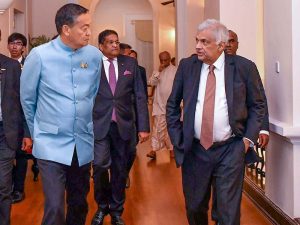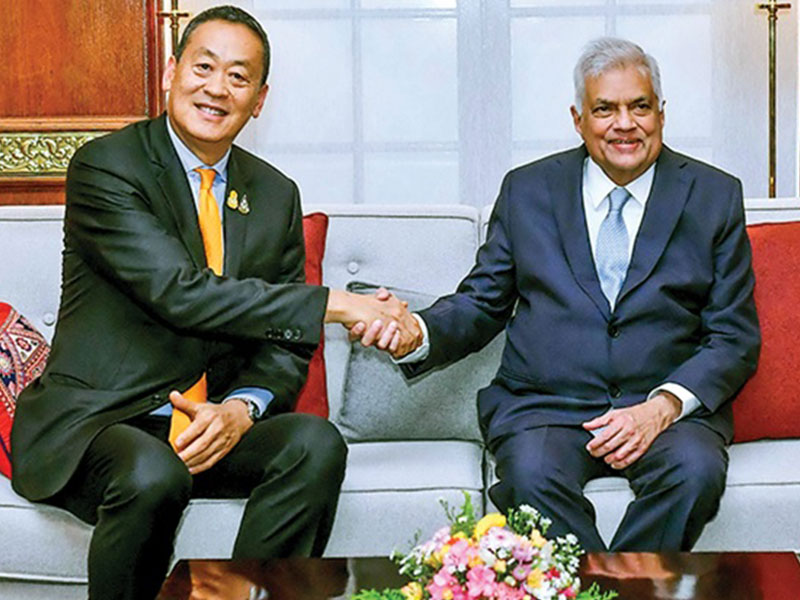The recent visit of Thai Prime Minister Srettha Thavisin to Sri Lanka resulted in several key agreements and discussions that aim to deepen cooperation between the two nations. This has generated optimism for a new era of economic collaboration and cultural exchange.
Free Trade Agreement Signed:
A central outcome of the visit was the signing of a Free Trade Agreement (FTA) between Sri Lanka and Thailand. This agreement seeks to eliminate tariffs and simplify regulations, potentially leading to increased trade in sectors like tourism, agriculture, and gems and jewelry. Proponents argue that this could benefit both economies by promoting exports and attracting foreign investment. However, some analysts caution that the full impact of the FTA may depend on its implementation and how it addresses potential concerns about unfair competition or job displacement in certain sectors.
Enhanced Connectivity and Potential Visa-Free Travel:
Beyond the FTA, both sides agreed to collaborate on enhancing connectivity through new air services and exploring the possibility of visa-free travel. This could contribute to increased tourism and cultural exchange between the two countries. However, it is important to note that discussions on visa-free travel are still ongoing, and the details of any such arrangement have yet to be finalized.
Regional and Global Collaboration:
The visit also highlighted the shared commitment of Sri Lanka and Thailand to regional and global cooperation. Both countries reaffirmed their participation in forums like BIMSTEC and IORA, indicating a collective vision for a more prosperous and stable Indian Ocean region. Additionally, Sri Lanka’s aspiration to join the RCEP, a major trade pact, aligns with Thailand’s membership, suggesting a shared interest in deeper integration into the global economy.
Sri Lanka’s Economic Recovery and Potential Thai Investment:
President Wickremesinghe emphasized the potential role of this partnership in supporting Sri Lanka’s economic recovery and transformation. Thailand’s support and potential investments could contribute significantly to Sri Lanka’s journey towards sustainable growth and prosperity. However, it is essential to acknowledge that the actual impact of these investments will depend on their specific nature and how they are implemented.
Business Opportunities and Future Collaboration:
The Sri Lanka-Thailand Business Forum facilitated discussions and networking between the two business communities. This exchange could lead to new partnerships and mutually beneficial collaborations, further solidifying economic ties between the nations. However, it remains to be seen how effectively these opportunities are translated into concrete outcomes.








